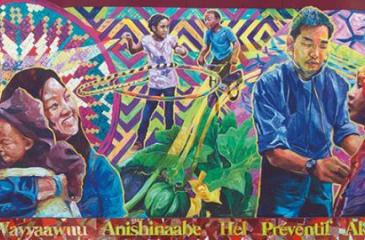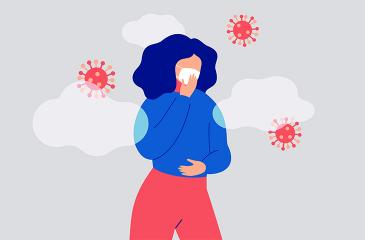The University of Minnesota Community-University Health Care Center (CUHCC) serves approximately 460 American Indians, half of whom identify as Ojibwe. Located in the heart of the Minneapolis American Indian Corridor, CUHCC is at the epicenter of one of the largest concentrated urban American Indian populations. Over its 54 year span, CUHCC has helped two neighboring federally qualified health care centers, the Indian Health Board, Inc. (IHB) and Native American Community Clinic (NACC), open their doors.
CUHCC applied for a Health Resources and Services Administration grant to start its Medication Assisted Therapy (MAT) program in partnership with IHB and NACC in 2016, building on a partnership around mental health care. The three health care centers came together again in 2018 to coordinate clinical care for those living in the Franklin Hiawatha Encampment.
Dr. Cuong Pham is one of CUHCC's Med-Peds physicians and a lead and founding provider of their current Suboxone MAT program. Approximately one third of the 250+ patients receiving opioid use disorder treatment at CUHCC identify as indigenous American Indian.
“CUHCC has been amazing in moving our in-person visits to video or telephone as fast as we can. Telemedicine allows us to provide care to those who don't have transportation or when it’s not safe to come to the clinic,” said Pham.
COVID-19 has impacted CUHCC’s indigenous patients in numerous ways.
“There has been an increasing number of tents going up around Hiawatha similar to the encampment that was near CUHCC a couple falls ago. So once again those who are unsheltered are experiencing greater issues with access to care,” said Pham. “Many of these patients commonly would walk in to our clinic, but now they need to be able to rely on technology. Of course, technology means you need tech literacy, access to a mobile phone, minutes/internet, and a private or safe space to talk on the phone. How do you ask a person who is not sheltered to stay at home?” said Pham.
Colleen McDonald Diouf, CUHCC’s CEO, remains dedicated to serving indigenous patients and works closely with NACC and IHB to advocate for health policy and care delivery changes.
“In the midst of this pandemic, we have an opportunity to re-imagine care with our communities,” said Diouf. “We know that our communities will be disproportionately impacted by COVID-19 and are working to develop ways to meet people where they are at so they have access to care and are supported.”
Pham adds, “There has been tremendous distrust between Native American communities and academic centers and the government because of colonization, historical trauma and lack of transparency. This is the time to slow down and listen to the community and trust that the community can make the best decisions for itself rather than inserting our actions when it’s not wanted. We, as an academic center, can learn from the community and build partnerships and think about collaborating in an equitable way.”



